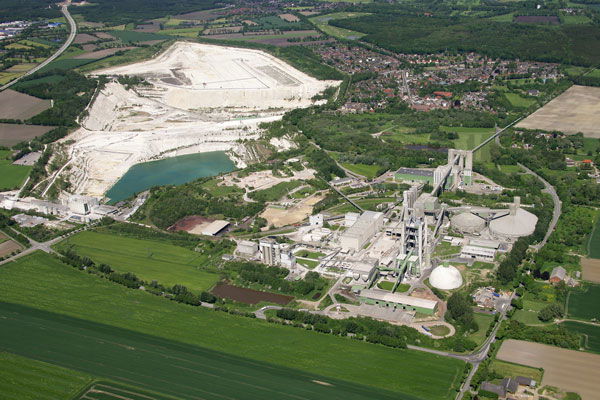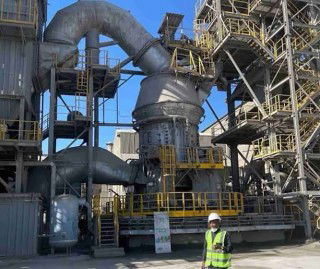Holcim has received EUR328m (US$355.36m) in funding from the European Union's Innovation Fund for two carbon capture, utilisation and storage (CCUS) projects. The schemes in Poland and Germany are part of Holcim's net-zero roadmap, including over 50 CCUS projects worldwide, and put the company one step closer to creating one of the world’s first climate-neutral cement plants.
Miljan Gutovic, region head Europe at Holcim, said, “As a global leader in building solutions, Holcim is on a mission to decarbonise the building industry. We are encouraged by these EU Clean Tech investments in our next generation technologies. They contribute to making our CCUS projects more viable and scalable, which can fundamentally change our industry for a net-zero future.”
The European Union Innovation Fund is one of the world's largest funding programmes for innovative low-carbon technologies. In 2022 the fund granted more than EUR1.8bn to 17 large-scale clean-tech projects out of a pool of 138 submissions.
Around EUR109m of the funding will be invested at Holcim’s Carbon2Business project in Lägerdorf, Schleswig-Holstein, Germany, to build a new kiln line. As an industrial-scale prototype for the decarbonisation of cement production, the kiln will use second-generation oxyfuel technology as well as a downstream compression and cleaning unit for the CO2.
Holcim's Carbon2Business project in Lägerdorf, Germany, will see EUR109m invested to build a new kiln line. (© Holcim (Deutschland) GmbH)
“We are transforming our factory in Schleswig-Holstein into a pioneer of green cement production. It will be a technological flagship of international relevance,” said Thorsten Hahn, CEO of Holcim Germany, “The investment made by the EU is an important milestone and will enable us to drive the cement revolution with greater decisiveness.”
Holcim is working with thyssenkrupp Industrial Solutions AG as a technological partner for the project, which involves using carbon dioxide from the Lägerdorf cement factory as a raw material for other industries. “The success of the energy transition will also depend on the issue of the sustainable, ie CO2-neutral, production of building materials. Pure oxyfuel technology will be a key part of the solution and a key contributing factor to the success of the cement industry’s green transformation,” said Pablo Hofelich, CEO of the Polysius Business Unit at thyssenkrupp Industrial Solutions.
The oxyfuel method produces high-purity CO2 which can be collected and subsequently turned into methyl alcohol through methyl alcohol synthesis or used as a primary material in the chemicals industry, for instance in order to make plastic. For the processing of the CO2 collected, Holcim is working closely with specialists from Linde Engineering. At the Lägerdorf site alone, the method reduces annual CO2 emissions by 1.2Mt.
Holcim is planning to submit plans for the construction of the oxyfuel kiln between the end of 2023 and 2024. Construction is expected to have been approved by the end of 2024 and, if all goes to plan, one of the first climate-neutral cement factories in the world will be able to start up operations by 2029, according to the company.
